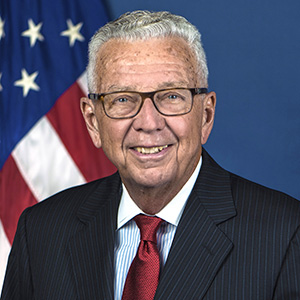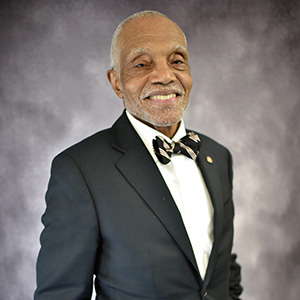At DEI Summit, Experts Discuss How to Turn Intentions Into Actions
June 16, 2022
The D.C. Bar Communities held its second annual Diversity, Equity, and Inclusion Summit virtually on June 10, providing attendees strategies and tools to assess the diversity and inclusiveness of institutions, workplaces, and communities.
With the theme “Putting Best Intentions Into Action,” speakers detailed efforts by the Bar and the D.C. government to improve diversity, equity, and inclusion (DEI). Members of project groups under the D.C. Bar Communities’ Diversity, Equity, and Inclusion Initiative discussed their recent work, including youth outreach to area high schools and the creation of a diversity and inclusion toolkit.
William Mond and Aisha Braithwaite Flucker, chair and vice chair, respectively, of the Youth Law Project Group, said their group has begun identifying potential partnerships with schools and developing a syllabus of topics and content for future events. Recently the group presented a panel discussion on careers in law to students from Dunbar High School.
Meanwhile, the Communities Newsletter Project Group sought member contributions to the newsletter, released three times a year, on actionable solutions to diversity and inclusion problems facing the Bar’s membership. “The D.C. Bar is the largest bar in the country, so we have diversity embedded at [its] roots,” said Keri Nash, vice chair of the group.
From the Best Practices Subcommittee of the Diversity and Inclusion Working Group, Charles Lemley gave a brief overview of the Lawyers’ Toolkit for Diversity & Inclusion. The document includes surveys and data on DEI in the legal industry and resources for the recruitment and retention of diverse candidates, as well as advice about fostering a culture of inclusion in workplaces. The toolkit is just one of the resources available on the Bar’s DEI web page, which includes on-demand courses, podcasts, and tools to assist in DEI efforts.
Lemley said the toolkit is intended to be a living document that needs to be regularly updated. “Our most important recognition is that this is only a beginning and there is a lot left to do, but we hope that everyone will be able to find this useful in developing their own DEI efforts,” he said.
Organizational & Personal Responsibility
In the breakout session “Beyond Diversity: Putting Inclusion Into Action,” presenters Sandra Yamate, CEO of the Institute for Inclusion in the Legal Profession, and Ellen Ostrow, a psychologist and founding principal at Lawyers Life Coach LLC, shifted the focus from organizations to personal responsibility when it comes to moving diversity beyond representation so that individuals can be their authentic selves in the workplace and promote positive change.
Yamate said that, too often, employees hope that human resources officers, DEI professionals, and top leaders take on the lion’s share of DEI responsibilities. While that’s easy to do, Yamate said employees “relinquish and abdicate responsibility” in the process. She also pointed out that DEI staff typically have many responsibilities but little authority to enforce change.
“Oftentimes a lot of the challenges to being a more diverse, equitable, and inclusive workplace don’t always rise to the level where something formal like human resources needs to be involved,” she said. “Or we look to leadership. In some ways, it’s good if you’ve got a clearly defined, top-down organizational management style. But as we know in the legal profession, we’re a little messier.”
Yamate and Ostrow advised participants to adopt inclusive behaviors such as self-education about people and cultures that differ from their own, allowing others to speak and amplify their voices, getting to know colleagues on a personal level, and learning how to listen to others without the need to respond.
Firms should strive to create psychologically safe work environments that help promote diversity and inclusion, Ostrow said. That safety net allows all employees to ask questions, share ideas, and make comments without the fear of embarrassment, marginalization, or punishment.
“This is why personal responsibility becomes so crucial,” Ostrow said. “Each individual can do everything they can to create that kind of psychological safety. When we make it safe for them to ask questions and to contribute their ideas, we are creating an inclusive environment.”
Holistic Assessments
In another breakout session, “Utilizing Holistic Climate Assessments in Law Firms to Improve Workplace Culture,” Ellen Eardley, Doris Quintanilla, and Ahmmad Brown, who are all with the Working IDEAL consulting firm, outlined tools that law firms can use to assess their diversity and inclusiveness.
“We like to use the word ‘assessments’ because we think of this as a broad quantitative and qualitative look at the experiences of folks,” Eardley explained. “An audit may be too narrow for the goals of racial equity and the outcomes that we’re hoping to achieve. We like to think holistically to assume that while we may be doing a racial equity assessment, we need to look at the broad experience of humans and our organization as well as intersecting identities.”
“Typically, when we do an equity or culture assessment, we want to engage all members of your organization across hierarchies to get a holistic sense of how everyone in your organization is experiencing the organization,” Brown said. “So, fundamentally when you engage in your assessment, you’re going to have some stakeholder engagement, not just internally but potentially external stakeholders as well.”
Eardley advised firms to identify and engage process owners and stakeholders, ensure the process is independent instead of being administered in-house, build trust and transparency from the participants of the assessments, ensure the safety of participants so they will know that there will be no repercussions if they report negative information, and coach organization leaders on the risks and opportunities of the assessments.
When firms gather data for their assessments, Quintanilla advised using a robust, multimethod approach that could include anonymous online surveys, focus groups, private interviews, historical data, and existing benchmark data. To ensure the credibility of that data, she encouraged firms to contract third parties to direct the interactive process, verify that the assessment team has a valid methodology, consider all perspectives and contexts, and confirm that all data is objective and independent.
“Make sure that the findings are objective and they’re independent, so that the people can believe the information,” Quintanilla said. “If not, the process is not going to work.”
District’s Commitment to DEI
Meanwhile, Dr. Amber Hewitt, chief equity officer for the Office of Racial Equity in the District of Columbia Office of the City Administrator, described the city government’s efforts to promote equity in governance. Hewett said that the Office of Racial Equity, established by Mayor Muriel Bowser in 2021, first set out to define the issues, set indicators for assessment, and develop tools to assist those working to advance the DEI cause.
Hewett said her office is now ready to transition from organizational planning to action. “This year we had to have a very broad focus,” she said. “I’m looking forward to narrowing our focus [on specific policy areas] based on the priorities and the will of the mayor.”





